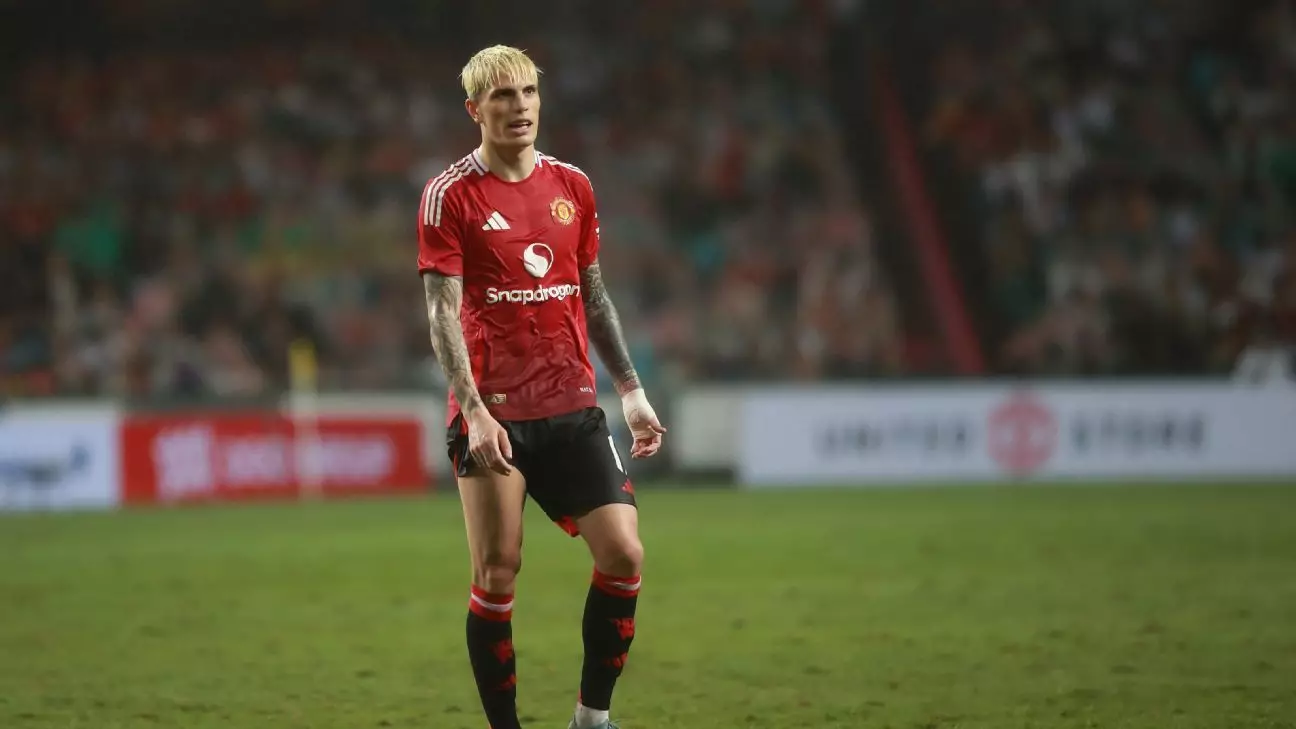Manchester United’s current transfer saga reveals a club at a crossroads, grappling with the challenge of managing squad stability while chasing competitive excellence. Coach Ruben Amorim’s candid stance underscores a critical reality: the team’s future hinges on strategic patience and nuanced negotiations. Instead of rushing into rash signings or dismissing players outright, Amorim emphasizes a flexible approach—one that keeps doors open for returning players if transfer deals fall through. This pragmatic yet optimistic attitude signals a conscious effort to mold a squad that balances fresh talent with seasoned professionalism.
Amorim’s acknowledgment that some players are exploring new opportunities reflects a transparent leadership style uncommon at this elite level. It suggests a shift from rigid squad management to a more adaptable, player-centric philosophy. The intention is not merely to offload unwanted players but to create a supportive environment where individuals can pursue their ambitions, confident of reincorporation should circumstances change. Such a stance fosters internal competition and underscores the club’s commitment to retaining flexibility amid uncertain transfer markets.
Player Autonomy: A Double-Edged Sword
One intriguing element in Amorim’s strategy involves empowering players to make their choices—whether to stay or seek greener pastures. While this can promote motivation and respect, it also risks destabilizing team harmony if not managed carefully. For instance, Garnacho, Antony, Sancho, and Malacia are currently sidelined, with their future contingent on potential moves or internal reintegration. The approach puts pressure on the players to make swift decisions amid the intense scrutiny of the transfer window.
This autonomy reflects a broader philosophical stance: that players should actively control their careers, and the club will adapt accordingly. However, the risk lies in the possibility of discontent or perceived instability if key figures remain on the fringes without clarity. For Manchester United, the challenge is to balance respect for player agency with maintaining a cohesive, unified squad that can perform at its best. The delicate interplay between flexible management and strategic planning will ultimately define the club’s pursuit of success this season.
Building Around a Core: The Quest for a Balanced Squad
Despite ongoing transfer uncertainties, Manchester United’s focus on developing existing talent remains evident. The arrival of new signings like Matheus Cunha and Bryan Mbeumo signals a desire to inject fresh energy into the squad, yet the club remains pragmatic about its needs, especially in attack. Amorim’s comments about potentially starting the season with the current squad highlight a mature understanding: sometimes, patience and internal development trump rushed signings.
The dilemma surrounding the striker role exemplifies broader strategic considerations. While fans eagerly anticipate a new No. 9, Amorim’s readiness to proceed without one underscores confidence in current options like Rasmus Hojlund and Josh Zirkzee. It also hints at a philosophy that values squad harmony and internal competition, fostering a nurturing environment for younger players. This approach seeks to avoid unnecessary transfer fees or disruptive signings, instead opting for organic growth and tactical flexibility.
Ultimately, Manchester United’s emphasis on building around a combination of experienced signings and emerging talents aims to create a resilient team capable of competing at the highest level. Amorim’s comments signal a belief that team chemistry, fight, and tactical adaptability may outweigh the allure of star signings—at least for now. This mindset challenges the conventional football wisdom that more signings guarantee success, favoring a more measured, internally motivated strategy.
The Cultural Shift: Fostering Confidence Amid Uncertainty
United’s current transfer window encapsulates a broader cultural shift—one that values patience, internal growth, and leadership transparency. Amorim’s openness about the club’s options and internal discussions fosters an environment of trust and resilience. Rather than succumbing to panic or external pressure, the club appears committed to strategic decision-making that prioritizes long-term stability over short-term results.
This approach has its risks. In today’s hyper-competitive football landscape, uncertainty can breed anxiety among players and fans alike. Yet, United’s willingness to embrace this ambiguity might prove to be an insightful move—one that allows flexibility and fosters a winning mentality rooted in perseverance. The endorsement of internal options, the readiness to face a season without significant signings, and the respect for player choices collectively create a culture of confidence—not arrogance but a bold belief in a cohesive, adaptable squad.
Manchester United’s current strategy is a testament to a club that refuses to be dictated solely by market trends or fleeting success. It champions a vision centered on internal growth, strategic patience, and the belief that true strength stems from unity, resilience, and a clear-eyed assessment of its realities. This mindset may challenge traditional notions of immediate success but has the potential to forge a more sustainable and genuinely competitive team for years to come.

